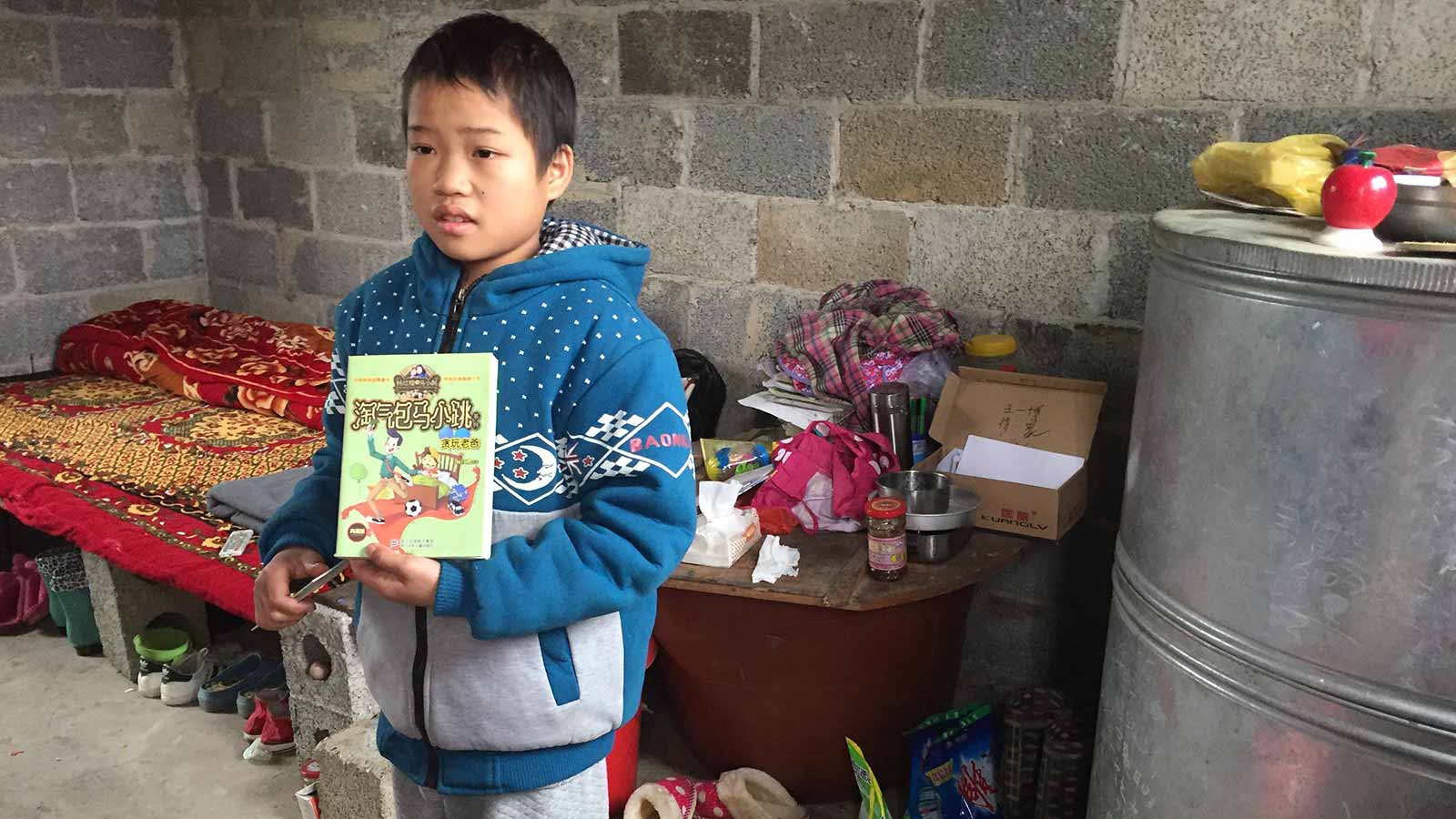Every day 2-year-old Shelby Jane spent in an orphanage in China, she grew weaker. She needed to join her adoptive family — and fast — but finances stood in the way. That’s when a Holt donor stepped in to help.
Two-year-old Shelby Jane had a hole in her tiny heart, a blood condition called thalassemia and chronic cases of pneumonia and bronchitis that caused her to be hospitalized just about every month of her 24-month life. She could not speak, could not crawl and could not chew food. Every day she spent in an orphanage in China, she grew weaker.
Her adoptive parents, Michelle and Adam Campbell, needed to bring her home — and fast.
“We knew we needed to go get her because she wasn’t getting the care she needed. Waiting,” Michelle says, “wasn’t an option.”
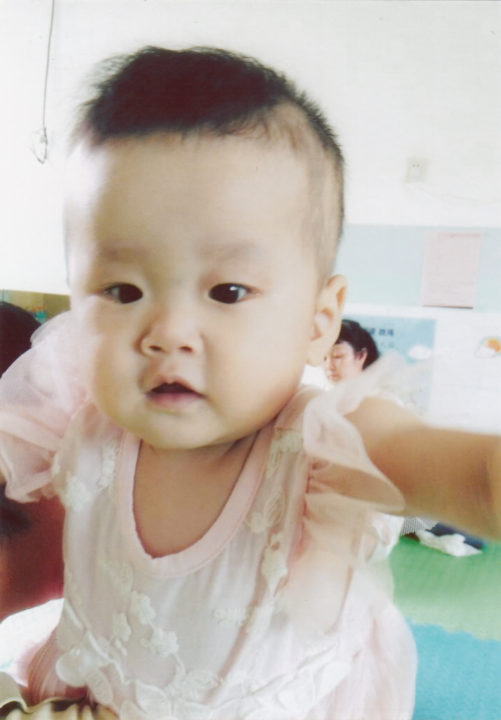
When Michelle and Adam started the process to adopt from China, they knew their son or daughter would have special needs. They knew that all children adopted internationally from China — and just about everywhere— are now either older in age or have at least some moderate special needs. And to decide which needs they would be open to, they researched not just the medical and developmental conditions that children commonly have, but also the resources their community had to offer.
“We made sure we had everything we could give our daughter or son — whatever they needed,” says Michelle.
Because so many older boys needed families — and they were open to an older boy — they thought they would be matched with a boy. As Michelle is a teacher for the deaf, they also thought they might be matched with a child who has a hearing impairment. So when they received a match from Holt just 14 days after Michelle turned 30, the minimum age to adopt from China, they were surprised to see a picture of Shelby Jane.
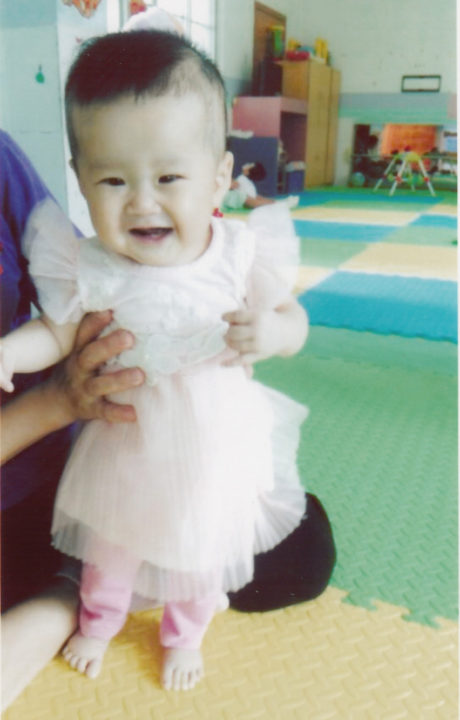
“We were shocked, excited, scared and in love already,” says Michelle.
For Holt’s matching committee, it all came down to Michelle and Adam’s openness, and ability, to meet Shelby’s needs.
“We’re about two hours from a hospital in Philadelphia that has a thalassemia clinic,” Michelle says. “That’s how we ended up with thalassemia being our need.”
Although overjoyed to be matched with their daughter so quickly, Michelle and Adam immediately went into overdrive preparing to bring her home. They learned everything they could about thalassemia. They connected with the international adoption clinic in Philadelphia, and visited the cardiology department to ask about the PFO — the hole — in Shelby’s heart. They researched the other rare blood disorder that Shelby had been diagnosed with, and they looked into their insurance to get an estimate of what it would cost to provide all of the care that Shelby needed.
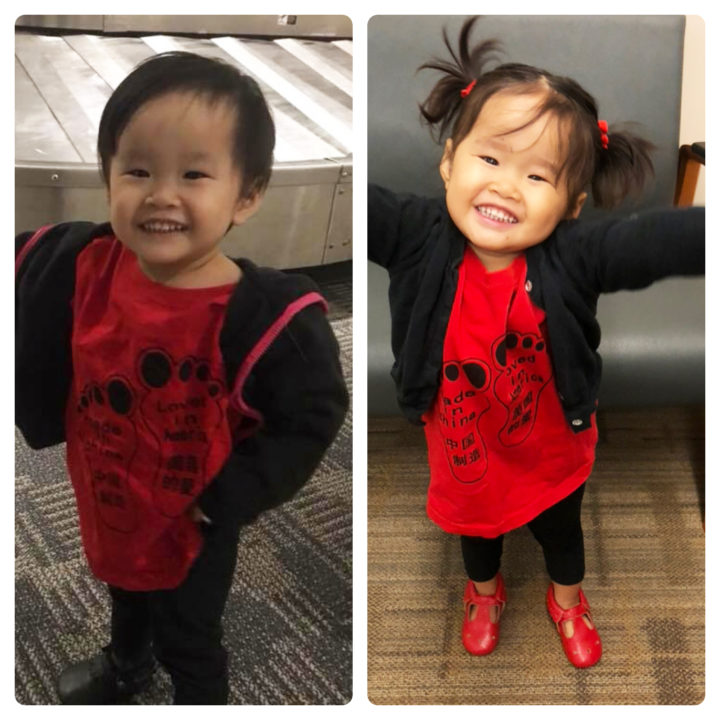
“We went into it expecting her to have as many appointments as possible,” Michelle says. “She could need every therapy, all of these doctors. We needed to know all of our resources.”
But prepared as they were, they still had much less time than they anticipated to pull these resources together. They expected to have three months between application and match, and six months between match and travel. For each month, they had a fundraiser planned.
Michelle and Adam had saved as much as they could, but they still needed to come up with several thousand dollars to cover their travel expenses. And with Shelby waiting and growing sicker by the minute, they could not put off their travel date.
“But with six less months, we had six less fundraisers,” Michelle says. “They all got cancelled.”
They had saved as much as they could, but they still needed to come up with several thousand dollars to cover their travel expenses. And with Shelby waiting and growing sicker by the minute, they could not put off their travel date.
That’s when Holt donors stepped in with a Holt adoption grant — a grant to help children just like Shelby come home to the loving, permanent families they need.
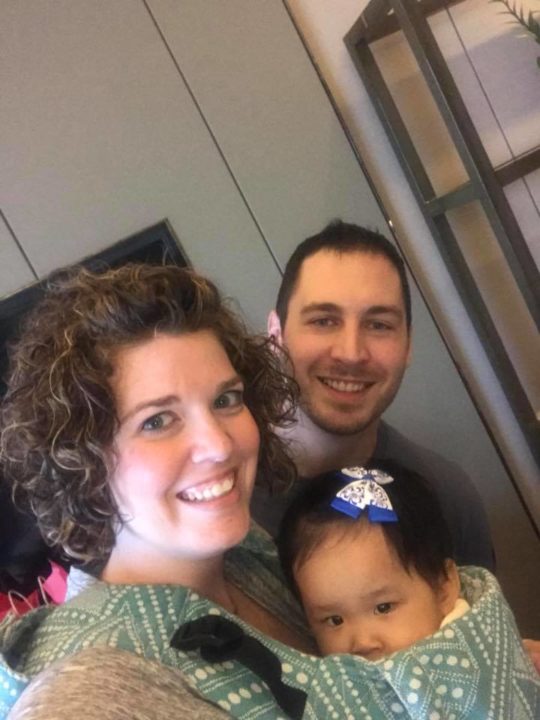
“When we got the grant, a huge weight was lifted to get her home, to get her the care she needs,” Michelle says. Not only did the grant cover Michelle and Adam’s travel costs, it also helped them afford any urgent medical care Shelby might need while still in China.
“We needed to prepare for in-country medical care because she couldn’t fly if her hemoglobin was not high enough,” Michelle says. By covering their travel expenses, the Holt adoption grant freed up funds if Shelby needed a blood transfusion.
“It’s a substantial amount of money that helped us,” Michelle says. “When we found out, we both just stared at each other and felt so thankful for what God was doing on our journey. It was just a huge worry that we didn’t have anymore.”
Fortunately, Shelby did not end up needing a blood transfusion in China. But once home in the U.S., the Campbells immediately shuttled her to Philadelphia for the comprehensive care she had gone without for the first two years of her life.

“We landed on a Saturday and her first transfusion was on a Monday,” Michelle says.
Over the next year, Michelle and Adam drove their daughter to the hospital in Philadelphia once every week for treatment. She saw the cardiologist about her heart, received regular blood transfusions to treat her thalassemia and regularly visited her international adoption doctor. Soon, Shelby’s doctors identified the reason she kept coming down with pneumonia and bronchitis while in China.
She had asthma. It had never been treated.
“She wasn’t getting the basic healthcare she needed to stay healthy,” Michelle says, referring to the two years she spent in an orphanage. At 2, she was still reliant on a bottle. And very likely, her caregivers had fed her while she lay on her back, with a bottle propped to her mouth. Although a common, time-saving solution for overworked caregivers who need to feed many children at once, propping bottles can cause children to choke on their milk — and prevent them from developing age-appropriate feeding skills like chewing and swallowing.
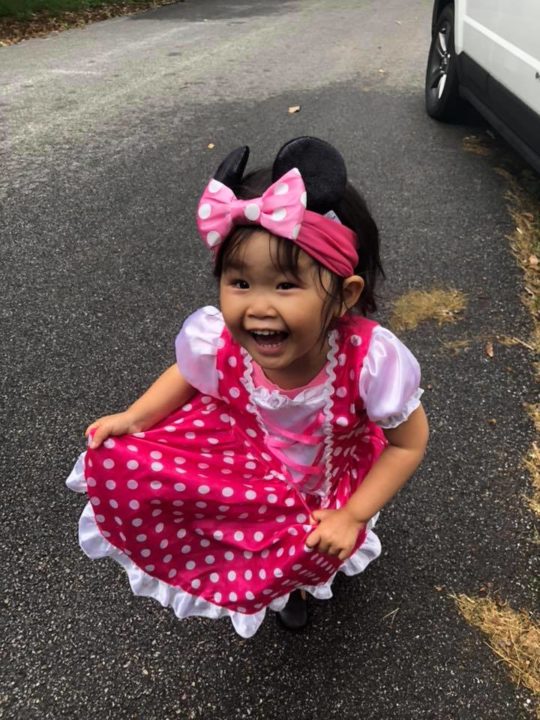
“She didn’t know how to chew, eat food or swallow out of a cup,” Michelle says. Shelby was also considerably underweight. At 2, she weighed just 19 pounds — about 10 pounds lighter than average.
But once in the care of her two devoted parents — parents who had the time and attention to lovingly hold her while they fed her — Shelby began to change before their eyes. “She gained two and a half pounds in China in the two weeks we had her,” Michelle says.
And once home in the U.S. and receiving the comprehensive care she needed, Shelby began to change in other ways as well.
At first, Shelby seemed very shy and timid. Although she understood language, she couldn’t speak any words. “Now,” Michelle says, “she speaks constantly and is incredibly funny. She loves to make people laugh. She also calls herself brave. Every time she gets something done at her medical treatment, she will say, ‘Mama, I’m so brave.’”
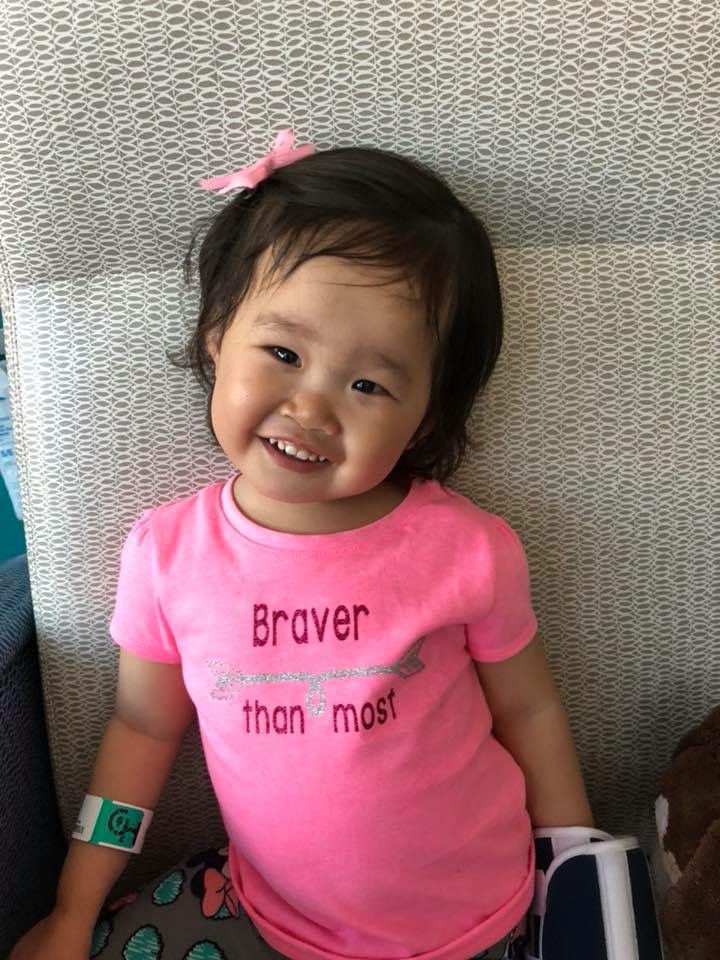
When they first met her, Shelby could walk, but not crawl or run — “probably,” Michelle says, “out of fear.” Now she runs and climbs and does summersaults in gymnastics class. She’s very social when she feels safe, and has a strong, confident personality.
“She’s just a really fun, intelligent, witty 3-year-old,” Michelle says.
In the 16 months since Shelby traveled home from China, she has never once needed to be hospitalized. Her doctors anticipate that the hole in her heart will soon close on its own. And her thalassemia is well managed.
“Honestly, I would say that on a daily basis, we don’t think about thalassemia,” Michelle says. “We think about it when we give her her medicine and when we get close to transfusion. But it’s not a need that consumes her day.”
To get to this place, however, it took a tremendous amount of time and effort and devotion and care and love. To care for Shelby, both Michelle and Adam became virtual experts in thalassemia — to the point where they now educate Shelby’s pediatrician on the complexity of her blood condition. Working with the international adoption clinic, Michelle and Adam put their daughter on a special diet to help treat the other rare blood disorder she was diagnosed with. Every week, they take her to speech and feeding and physical therapy to help her catch up developmentally from her time in an orphanage. And every three weeks, they still make the two-hour trip to Philadelphia for Shelby to receive a transfusion.
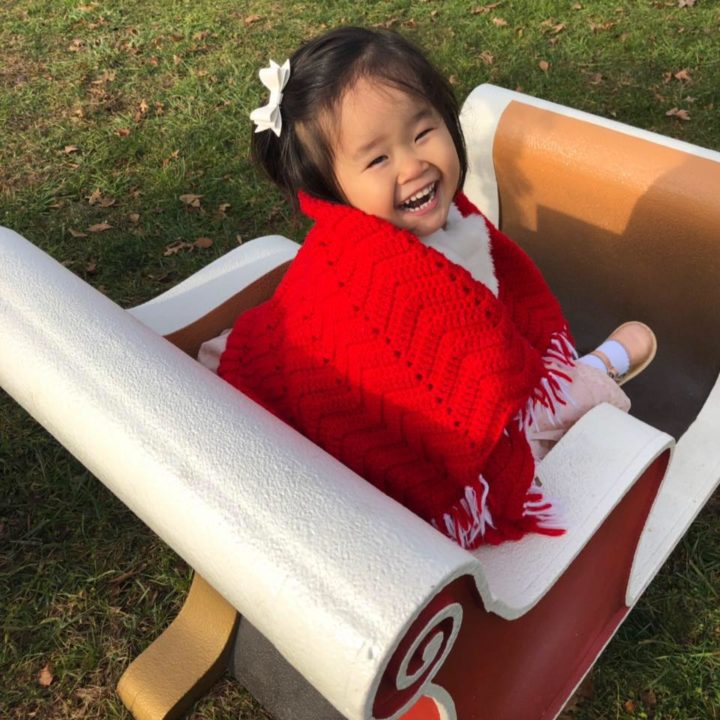
Shelby is now brave and confident and thriving. But it’s difficult for Michelle to think about what might have become of Shelby had she never joined a family.
“I don’t think she would have grown up. I think that she would pass away,” she says. “It’s so hard to talk about because you don’t want to imagine that children are suffering, but we know it’s happening.”
To the generous donors who helped cover the final adoption costs for Shelby to join her family, Michelle would like to say thank you. “But I also want them to know that they are literally saving children’s lives,” she says. “Who Shelby is now wouldn’t be possible without the people that supported us to get her home.”
Most of all, Michelle wishes that donors could meet her daughter — that they could see the thriving, healthy girl they helped her become.
“I think it would be so impactful,” she says. “For her, and for them.”
Your gift to Holt’s Families Not Finances campaign will help cover adoption fees and expenses for a child who has waited longest or needs the most help finding the right loving family. Visit holtinternational.org/adoptiongrant to learn more and give a gift now!


